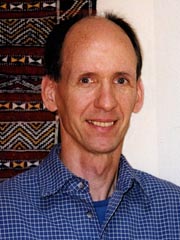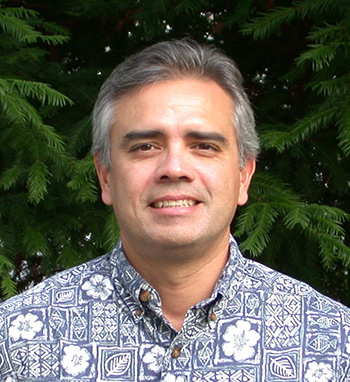Campus News
Three UCSC professors elected to American Academy of Arts and Sciences
Three UCSC faculty are among 212 leaders in the sciences, arts, humanities, business, public affairs, and nonprofit sector, who have been elected this year as fellows of the American Academy of Arts and Sciences.
Three UCSC faculty members have been selected as newly elected 2011 fellows of the American Academy of Arts and Sciences:
• Thomas Banks, Distinguished Professor of Physics
• James Zachos, Professor, Earth and Planetary Sciences
• James Clifford, Professor Emeritus, History of Consciousness
They join two dozen other current UCSC faculty members who are fellows of the academy, one of the nation’s oldest and most prestigious honorary societies.



The three UCSC faculty are among 212 leaders in the sciences, arts, humanities, business, public affairs, and the nonprofit sector, who have been elected this year as fellows and foreign honorary members of the academy.
Among the 2011 class are winners of the Nobel, Pulitzer, and Pritzker Prizes; the Turing Award; MacArthur and Guggenheim fellowships; and Kennedy Center Honors, Grammy, Golden Globe, and Academy awards.
They include astronomer Paul Butler, jazz icon Dave Brubeck, Levi Strauss & Company’s Robert Haas, documentary filmmaker Ken Burns, actress Helen Mirren, and Nobel laureate writer Mario Vargas Llosa.
Thomas Banks has been an influential thinker on a broad range of topics in theoretical physics, both individually and in collaboration with other physicists. He has done significant work in areas such as the physics of black holes, particle physics, quantum gravity, and quantum field theory. Banks is the author of a 2008 textbook on quantum field theory titled Modern Quantum Field Theory: A Concise Introduction (Cambridge University Press).
The development of string theory, an ambitious attempt to find a unified theory of the forces of nature, is just one area in which Banks has made important contributions. The first proposal for a complete formulation of string theory was presented in a widely known paper published in 1997 by Banks in collaboration with other scientists. Known as the Matrix theory, it gave rise to many later developments.
A leader in the field of paleoceanography, James Zachos studies marine environments in Earth’s past by analyzing evidence in the layers of sediments deposited on the seafloor. Using the chemical compositions of fossils and other clues, he and his students are able to reconstruct climate conditions and ocean chemistry during past episodes of extreme climates. They have also been able to show how the climate has responded to periodic changes in Earth’s orbit.
Much of Zachos’s research has focused on major climate shifts during the past 65 million years, such as the Paleocene-Eocene Thermal Maximum (PETM). This work is highly relevant to understanding how human activities are driving modern-day global climate change.
James Clifford taught in UCSC’s History of Consciousness Department for 33 years and was founding director of the Center for Cultural Studies. He is best known for his historical and literary critiques of anthropological practice, travel literature, and a variety of cultural performances. He is currently completing a book about indigenous cultural politics that he has been researching for nearly a decade. The book examines what it means to be “rooted” in a world where everything seems to be in motion.
Clifford’s new book will complete a trilogy. The widely influential first volume The Predicament of Culture (Harvard University Press, 1988) wove together essays on 20th-century ethnography, literature, and art. It has been translated into eight languages. The second, Routes: Travel and Translation in the Late 20th Century (1997) explored issues of dwelling and travel in anthropology, travel, tourism, and museum work. The books are inventive mixtures of scholarly analysis with meditative essays and poetic experimentation.
The 212 new members join one of the nation’s leading centers for independent policy research–members contribute to Academy studies of science and technology policy, global security, social policy and American institutions, the humanities, and education.
“It is a privilege to honor these men and women for their extraordinary individual accomplishments,” noted Academy President Leslie Berlowitz. “The knowledge and expertise of our members give the Academy a unique capacity–and responsibility–to provide practical policy solutions to the pressing challenges of the day. We look forward to engaging our new members in this work.”
The new class of 2011 AAAS fellows will be inducted at a ceremony on October 1, at the Academy’s headquarters in Cambridge, Massachusetts.